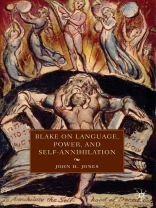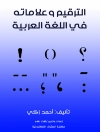Against a historical backdrop that includes eighteenth-century language theory, children’s literature and education, debates on the French Revolution, Biblical interpretation, and print culture, Blake on Language, Power, and Self-Annihilation breaks new ground in the study of William Blake. This book analyzes the concept of self-annihilation in Blake s work, using the language theories of Mikhail Bakhtin to elucidate the ways in which his discourse was open to the viewpoints of others, undermines institutional authority, and restores dialogue. This book not only uncovers the importance of self-annihilation to Blake’s thinking about language and communication, but it also develops its centrality to Blake’s poetic practice.
Зміст
Introduction: ‘Otherness as Origin’ Blakean Inspiration and ‘Self-Annihilation’ The Discourse of ‘Selfhood’ Self-Annihilation and Dialogic ‘Inspiration’ Songs of Innocence and of Experience: Contrary States, Conflicting Voices The Marriage of Heaven and Hell: Dialogue and ‘Imposition’ The [First] Book of Urizen: The Problem of Authorial Selfhood Milton: The Annihilation of Authorial Selfhood Jerusalem: The Reader and Self-Annihilation The Annihilation of Authorial Selfhood in Jerusalem Conclusion: The Irony of Self-Annihilation
Про автора
JOHN J. JONES Associate Professor of English at Jacksonville State University, USA.












